Marie Cocco: The Smoldering Legacy of the World Trade Center
After five years, we must ask: How did the path from Ground Zero somehow lead us to Abu Ghraib? Where did the elemental goodness that inspired us in those first days and weeks after the attacks on New York and the Pentagon go?After five years, we must ask: How did the path from Ground Zero somehow lead us to Abu Ghraib? Where did the elemental goodness that inspired us in those first days and weeks after the attacks on New York and the Pentagon go?
WASHINGTON — No, it is not too soon to see “World Trade Center,” the movie. It may well be too late.
In the run-up to the release of Oliver Stone’s gutsy, gripping film about two cops who survive beneath the rubble on instinct and a bond of human intimacy, the chatter was that five years might not be long enough to heal. The nation’s nerves are still raw, it was said. Who wants to relive Sept. 11, 2001, a nightmare replayed in an endless loop of television footage that is too painfully familiar?
But we must see — and pay attention to — the story of Port Authority cops John McLoughlin and Will Jimeno. It is not only to honor them, along with those who risked all to rescue them and all the souls who died that day. It is to understand what we’ve lost.
McLoughlin and Jimeno, the first a seasoned sergeant, the second an eager rookie, show up for work that Sept. 11 with every expectation of routine. When the first of the Twin Towers is hit by an airplane — even the cops initially thought it was an errant commuter flight — they are among a handful who volunteer to enter the inferno to evacuate the building. The collapse comes as they are still on the concourse; it buries them beneath a mountain of concrete and molten steel.
Their legs crushed, their radios useless, the two keep one another alive by talking about the ordinariness of daily life. There is a kitchen renovation to finish, a baby soon to be born who needs a name, wives to be loved more dearly. Marine rescuers eventually find the two in a daring, nighttime search. Members of a team of police and firefighters, along with a medic who’d lost his license, then risk their own lives as they descend into the pit to extricate McLoughlin and Jimeno.
The heroism of those who rushed into burning buildings or searched through smoldering debris was the uplifting theme of an otherwise debilitating day. Like so much about 9/11, it has been exploited by politicians of every stripe. So it is easy to forget why we were so drawn to these men and women in the first place.
The reason the firefighters and the cops and the medics and even the short-order cooks who fed recovery crews through the toxic cloud that enveloped Lower Manhattan is not just that they were brave and selfless — though they were. It is because, in the face of evil, they responded with morality.
And so after five years, we must ask: How did the path from Ground Zero somehow lead us to Abu Ghraib? Where did the elemental goodness that inspired us in those first days and weeks after the attacks on New York and the Pentagon go?
Certainly it was destroyed in part by the deceit that underlies the Iraq war, but that is only some of the answer. Historians tell us that a nation that feels under siege often behaves in ways that ultimately nurture greater threats and more catastrophes. The rise of Nazism in post-World War I Germany is the most often cited example. But such behavior, historians say, has been seen in fearful times since the ancient Romans.
Now the prison camp for alleged terrorists at Guantanamo Bay, Cuba, stands as an enduring monument to 9/11 — a no-man’s land where hundreds have been held for years without trials or a showing of evidence against them, a policy the president now belatedly scrambles to alter. We have what amounts to a constitutional meltdown, with the president declaring himself to have powers to eavesdrop, to imprison people indefinitely, to ignore the laws Congress passes and reinterpret them as he wishes through “signing statements.”
There has been loose political talk lately about appeasement, a charge the Bush administration uses against those who want some change in what has become a war without end. But who are the appeasers? We have had two national elections since 9/11. In both, the public has affirmed the policies carried out in our name. Now as the bitterness of another election season envelops us and the appeals to our fears intensify, a state of psychological siege is created as a means to carry the political day.
Early in “World Trade Center,” as the nervous rookie Jimeno waits for orders in the skyscraper’s still-intact concourse, he’s approached by a senior cop. “You’ll be all right, kid,” the older policeman says. “There’s a lotta good people here.”
It is the goodness we must remember on this anniversary — and try, ourselves, to live up to it.
Marie Cocco’s e-mail address is mariecocco(at symbol)washpost.com.
Your support matters…Independent journalism is under threat and overshadowed by heavily funded mainstream media.
You can help level the playing field. Become a member.
Your tax-deductible contribution keeps us digging beneath the headlines to give you thought-provoking, investigative reporting and analysis that unearths what's really happening- without compromise.
Give today to support our courageous, independent journalists.
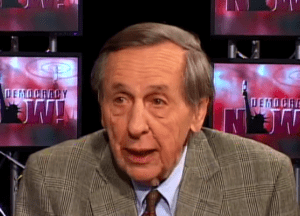

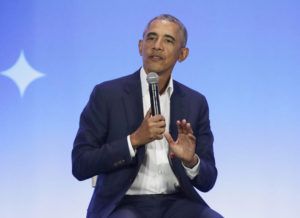
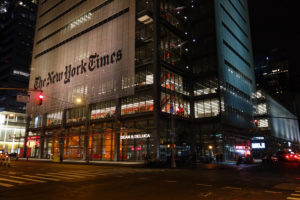
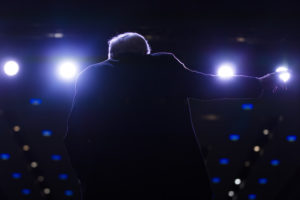
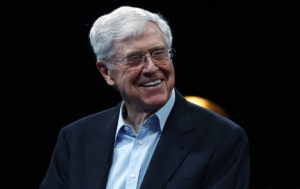
You need to be a supporter to comment.
There are currently no responses to this article.
Be the first to respond.